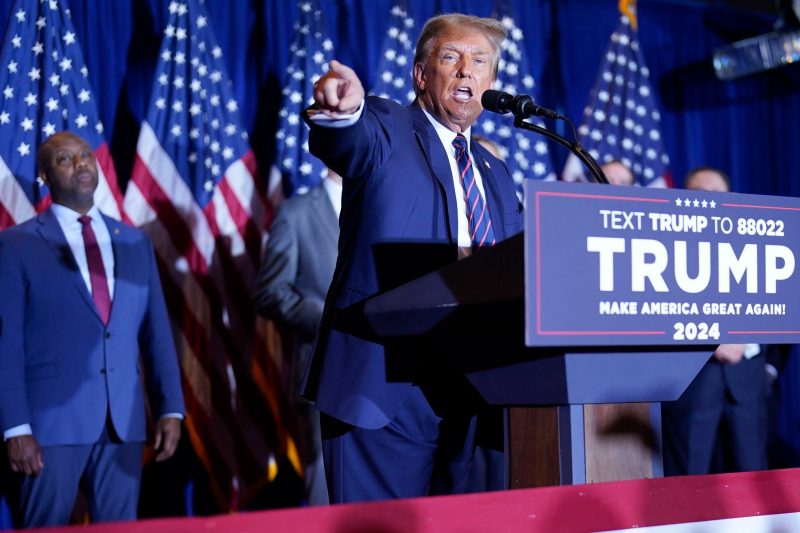Donald Trump’s opposition to the Republican National Committee’s (RNC) proposal to officially name him the party’s presumptive nominee has raised eyebrows and speculation about his motives. The former President’s decision to distance himself from the designation surprised many, considering his strong influence within the party and his previous presidential bid. This unexpected move carries significant implications for both Trump himself and the future of the Republican Party.
The RNC’s proposal to declare Trump as the presumptive nominee was an attempt to solidify his position as the party’s de facto leader, capitalizing on his popularity and solidifying party unity. However, Trump’s refusal to accept this declaration sheds light on the complex dynamics within the Republican Party.
One possible reason for Trump’s opposition to the RNC’s proposal could be his desire to maintain control over the party machinery. By sidestepping the typical party hierarchy and protocols that accompany an official nomination, Trump can continue to exercise his influence over the party’s direction and decision-making processes. This move also allows him to distance himself from any potential backlash or accountability associated with being the official nominee.
Another plausible explanation for Trump’s rejection of the presumptive nominee title may lie in his strategic thinking. By keeping his options open and evading a formal association with the party, Trump maintains the freedom to navigate political waters as he sees fit. This maneuverability could enable him to explore alternative political avenues, such as the formation of a third party or an independent run for the presidency. Trump’s inherent strength lies in his ability to connect with his base directly, and distancing himself from a formal party nomination might fuel this perception of being an outsider fighting against traditional political structures.
Additionally, Trump’s refusal to accept the presumptive nominee title might reflect his inclination to remain a dominant force within the Republican Party without being fully tied to party obligations. This strategy allows him to exert control over the party’s platform and candidate selection processes, ensuring that his agenda and policy priorities remain at the forefront. By maintaining a certain level of ambiguity, Trump can continue to shape the party’s direction without assuming the full responsibilities and obligations that come with the official nomination.
While Trump’s opposition to the RNC’s proposal can be seen as a shrewd political move, it also raises questions about the future of the Republican Party. Trump’s immense popularity and unwavering support from his base have highlighted a significant divide within the GOP between traditional Republicans and the more populist, Trump-aligned faction. By rejecting the presumptive nominee title, Trump further deepens this divide, potentially endangering the party’s unity and ability to appeal to a broader range of voters.
Moreover, Trump’s decision also suggests that the Republican Party may face challenges in finding a unifying figure to lead them in the post-Trump era. With Trump’s dominance within the party, his refusal to accept the presumptive nominee status leaves a void that potential candidates will soon attempt to fill. This power vacuum could spark internal power struggles and impede the party’s ability to present a cohesive front in future elections.
In conclusion, Donald Trump’s opposition to the RNC’s proposal to name him the party’s presumptive nominee underscores the complex dynamics within the Republican Party. Through this unexpected move, Trump aims to maintain control over the party machinery, preserve his strategic options, and exert influence without assuming full party obligations. While this decision hints at a shrewd political maneuver, it also raises concerns about the party’s unity and future leadership. As the Republican Party navigates the post-Trump era, it will face the challenge of reconciling the competing factions within its ranks and finding a unifying figure who can rally its diverse membership.
